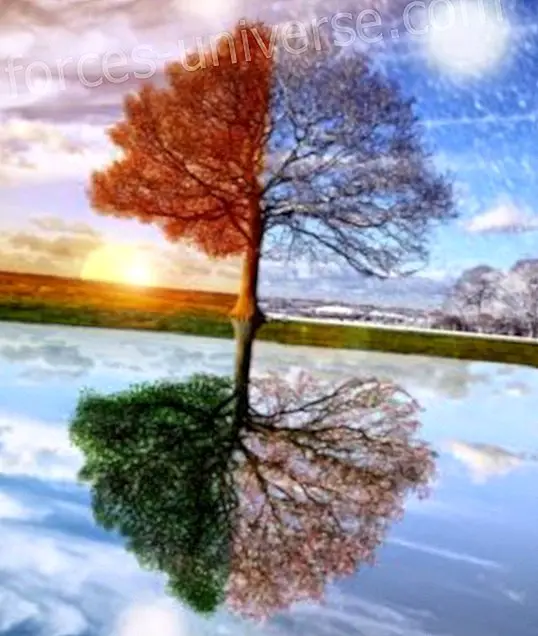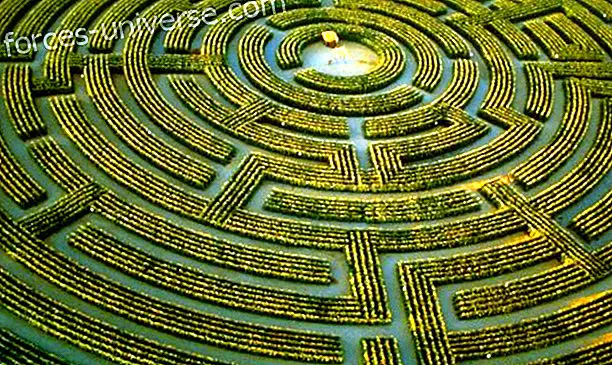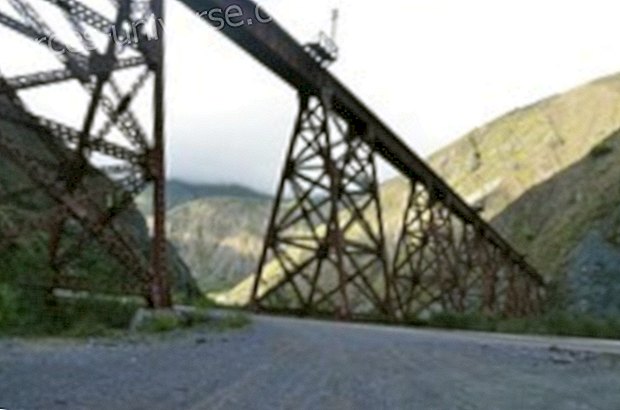Understanding life after death
Are we mortal humans ? Is there nothing left after death? Understanding the possibility of life after death has always been a desire of the human being
What is there after death? According to some, absolutely nothing. When the human being reaches the stages of old age, the cells of his body slowly deteriorate, and the organs begin to function with more difficulty each time, until one day they collapse . Then, nothing that used to be that person is preserved. Except perhaps, the memory of her in her loved ones, or in the history books if it was a known figure.
But if this is so, then why are we interested in asking about life after death, or conservation of our soul? What is the soul?

Science has shown that animals, including domestic animals such as cats and dogs, have no major concerns about the possibility of death. They do not start to worry about getting old or getting sick, nor do they manifest any kind of behavior that suggests they are taking into account the possibility of dying.
The only signal they usually give to know about their existence is when they feel an imminent danger. For example when they are attacked by an animal larger than them. At that time they try to take refuge. But this is not only done by dogs and cats, absolutely everyone, including worms, because it is an instinct that helps the species survive. It does not mean a form of awareness that they can die, it is an automatic reaction, similar to that of looking for food when there is hunger.
Only the human being sometimes spends hours meditating on what will happen to him after he dies, and has written many-page books about it.
Even so, despite all the meditations and written books, we all die unfailingly. But ... is there a soul or not? And does that soul die or remain undefined in time?
So, in the desire to ask ourselves this question, is that there is the answer. Where does this desire come from, if there is no soul? Who is it asking the question; What part of us, within us, does it?
Because it is known that we have several parts. Our desire to eat, provoked by our physical self, is not the same as our desire to study, provoked by our self-mind. Nor that our desire to love, provoked by our self-emotions. We have several "I's." What, then, of all those selves, is he who asks the question about life after death? Obviously it is not the physical self, because it is only interested in biological needs, nor is it the self-mind, because like dogs and cats, it is only interested in solving specific situations.
The sacred texts
There are many texts that can help us clarify this question. For example, in the sacred Bhagavad Gita of Hindu philosophy, there is a passage in which Master Krishna tells his disciple Arjuna:
“If you believe that the Self can kill, or you believe that this being can be killed, you don't understand the subtle paths of reality. He was never born; having been, never will not be. Unborn, primordial, does not die when the body dies. Knowing that it is eternal, unborn, beyond destruction, how could you kill? And who would you kill, Arjuna? In the same way that you get rid of used clothes and put on new clothes, the Being discards their used bodies and puts on new ones. "

What is Krishna talking about? Whatever it is, it is something that will remain, but also remained. And if it remained, it means that it was already in us in earlier times.
Sometimes, when we think that death can approach, we would like to believe that our self will remain after it. Especially if we liked this life, if it went well, if we enjoyed it. But Krishna does not tell us that everything we have will remain, it tells us that a certain garment "will disappear, and will be replaced."
What part will then remain? It also gives us the answer to this: the one that was already before.
Then we can start answering the question. What will remain is what it was when we were born.
If we see a picture of us when we were children and we were only five years old, we see it and say: "That was me." But how could we be the one in the photo, if everything in that person has changed? Your thoughts, your desires, your aspirations, even the cells in your body have also changed. How then do we say, is that me?
That me that we see when we look at the photo, that is the one who does not die. All the other, that other thing that we would like to subsist such as ways of thinking, tastes, ideologies, preferences, and a long etcetera, will disappear. All that is clothing.
Is it anguish to think that all that will disappear? Many people are distressed. But let's reflect carefully. When we look at the photo and know that some of that photo remained, although we do not know how to explain in words what it is that remained, we feel peace knowing that it will always remain with us.
And if we continue to reflect another bit, we will see that all those tastes and preferences that will disappear, we never cared too much. They have only reached us and joined us, they do not move us. We have only attached ourselves to those preferences, and we have called them our self. But they are a transitory self.
Again we see here how important it is then to meditate . The sensation of death can catch us, but when we reflect and place ourselves in ourselves, when meditating, fear disappears. That meditation is the human path, different from that of an animal, and different from that of a tree.
AUTHOR: H ctor, collaborator in the big family of hermandadblanca.org
SOURCES:
Awareness of death in non-human animals (Part I)
The key fragment of the Bhagavad Gita in which Krishna explains the immortality of the Self






